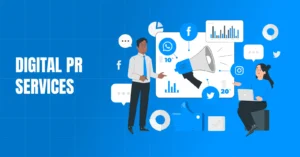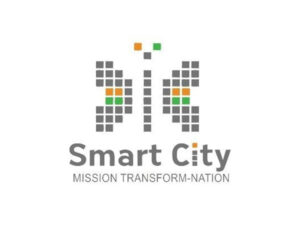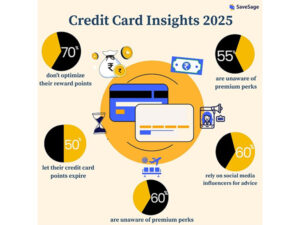Maharashtra Minister announces red carpet for MSMEs, startups
Mumbai, Aug 23 (PTI) Maharashtra minister for industries Uday Samant promised to roll out red carpet for projects of small and medium businesses and startups at par with ultra mega projects, as the state looks to transform Mumbai into a global fintech hub.
Samant inaugurated an exhibition at the 9th Global Economic Summit on ‘Fintech: Accelerating the Digital Revolution’ organised by World Trade Center Mumbai and All India Association of Industries (AIAI) from August 8-10, 2024 at WTC Mumbai.
According to a statement issued by the organisers, the minister speaking on this occasion said, “Fintech has revolutionized the financial services sector and it has the potential to support MSMEs and startup sectors. Our government will fulfill the vision of the Prime Minister to transform Mumbai into a global fintech hub”.
“The government of Maharashtra will provide red carpet to MSME and startup projects, at par with the treatment given to ultra mega projects as micro, small and medium enterprises are the pillars of our economy. If India aims to be the USD 5 trillion economy in the next few years, Maharashtra will contribute significantly to this target with the goal of USD 1 trillion economy vision,” he said.
He expressed the government’s intention to revive sick industries, especially the MSME units in Maharashtra and he sought the support of WTC Mumbai and AIAI in this initiative.
“Given the large population, the sector witnessed rapid surge in the last five years, attracting significant investment and global attention; Our country is the world’s 3rd largest fintech service provider with fintech adoption of 87 per cent compared to the global average of 64 per cent. India received 15 per cent of global fintech funding,” said V Anantha Nageswaran, Chief Economic Advisor, Government of India.
The digital lending market was valued at USD 270 billion in 2022 and it is expected to have reached USD 350 billion last year, Nageswaran added.
In her address, Nidhi Choudhari, CEO – Nodal Officer, Maharashtra State Innovation Society said “Maharashtra has the maximum fintech startups in India, especially in Mumbai, which provides fertile ground for fintech startups.
“Our Innovation society supports startups in gaining national and international patents, quality certification; there are many incubation centers in Mumbai and over 28 of them are supported by us. We provide grants of up to Rs 5 crore for incubation centers.”
In the incubation facilities, startups get seed capital grants and accelerator support.
“We have got two funds exclusively for startups – Maharashtra Innovation and Transformation Capital with the support of IDBI Capital and another Rs 100 crore fund with SIDBI with the support of the World Bank,” Choudhari said.
The winners of the state’s startup competition get work orders from the Maharashtra government. Under the 2016 public procurement policy, it provides procurement support to startups up to 10 per cent work order of government departments, with the exemption of Earnest Money Deposit (EMD).
“Mumbai has the second fastest growing fintech ecosystem in the world and Mumbai is poised to become the global fintech hub. I am confident that the city will produce more fintech unicorns in the coming years,” Ashish Shah, Director, Division of Country Programmes (DCP), International Trade Centre, Geneva said.
Putting the spotlight on the potential of India-Africa partnership in fintech, Shah said Africa is where the fintech industry is dynamic and vibrant.
“I call upon Indian companies to grab fintech opportunities in Africa. Almost 50 per cent of Africans are unbanked; this provides a huge opportunity for Indian companies to provide fintech solutions. Indian fintech companies can benefit from the one unified market under the Africa Continental Free Trade Agreement (AfCTA),” Shah said.
In his welcome remarks, Vijay Kalantri, Chairman, World Trade Center Mumbai & President – All India Association of Industries (AIAI) suggested the state government to revive SICOM and Maharashtra State Finance Corporation to boost MSME funding in the state.
Speaking on this occasion, Rupa Naik, Executive Director, WTC Mumbai said “Fintech solutions can bridge the Rs 19 lakh crore credit gap faced by the MSME sector in India. Improved access to credit can help MSMEs to expand capacity, generate more jobs and contribute more to the GDP.
In his remarks, Somesh Batra, Vice Chairman, WTC Mumbai said “India is aiming to be the global fintech capital and we need continuous innovation to attain this milestone. Already, we have cutting edge technologies such as blockchain and their application in fintech segments such as InsurTech and WealthTech.”
Fintechs are enablers and also disruptors. As an enabler, fintech can facilitate businesses with smart payment and banking solutions. At the same time, we need to ensure prudent deployment of fintech solutions with minimal disruption to the business.”
Carolina Quintana, Director, Asia Pacific Region, World Trade Point Federation said “As technology evolves, more savings, insurance and other financial services will evolve. I represent a Swiss association that enhances the trust of organisations through certification so that certified companies can access financial services and the global market.”
Jayakumar S. Pillai, Deputy Managing Director, IDBI Bank said RBI’s technology sandbox, innovation hubs, artificial intelligence, machine learning and blockchain are shaping fintech evolution.
Anindya Sunder Paul, Chief General Manager, SMEBU, State Bank of India said fintech can play a pivotal role in realizing the Government’s vision of Viksit Bharat and a digitally empowered nation.
“Today, 97 per cent of SBI’s transactions are on digital platforms, 63 per cent of our savings accounts are digitally opened through our Yono App. In the credit appraisal and credit delivery system, whether in agriculture, MSME, housing loan or car loan, we have adopted digital technologies for frictionless credit. We have introduced pre-approved business loans for MSME units, where even documentation is done digitally,” he noted.






